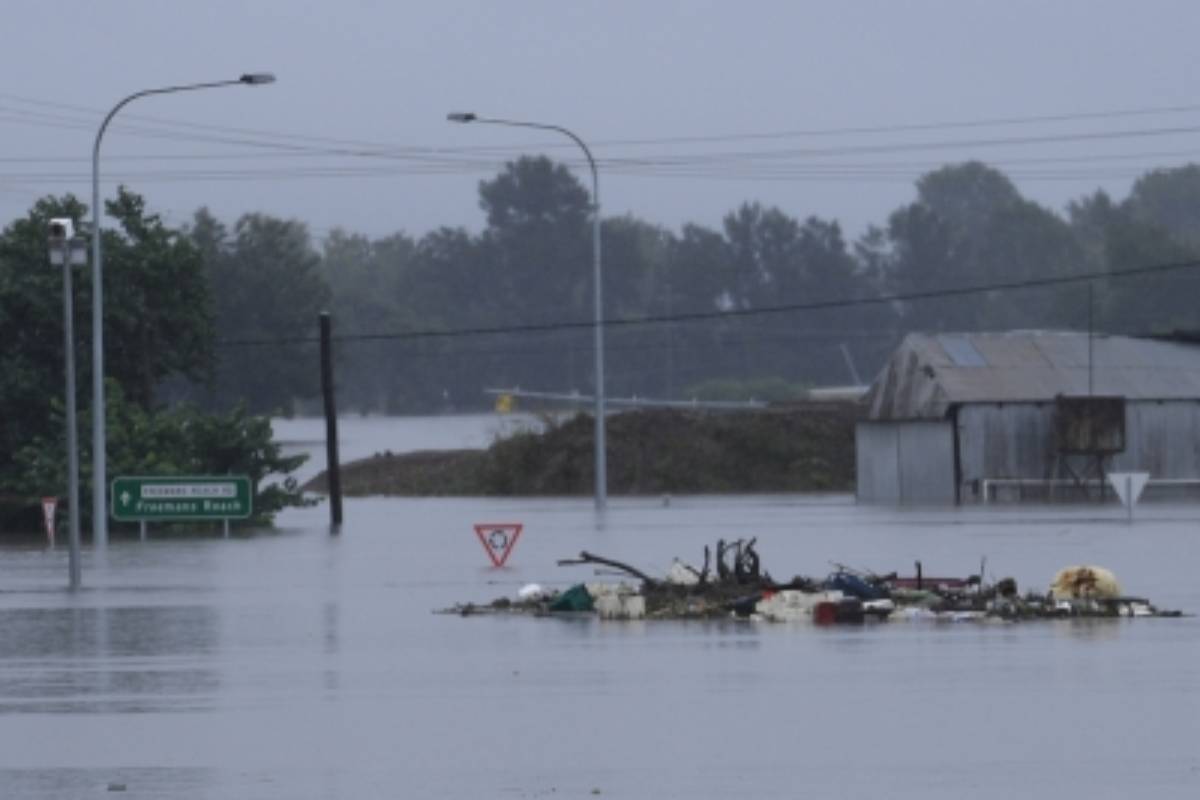CDS Gen Anil Chauhan Concludes Visit to Australia
During the visit, Gen Chauhan engaged in extensive discussions with Admiral David Johnston, Australia’s Chief of Defence Force, and members of the Chiefs of Staff Committee.
Among the worst-hit regions in NSW is in the Upper Hunter, about 300 km north of Sydney, where flood waters have inundated homes in the rural town of Cassilis.

Image credit: IANS
Flood warnings were issued on Friday for parts of New South Wales (NSW), Queensland and Victoria as emergency workers were bracing for another busy weekend following continued widespread torrential rain and thunderstorms on Australia’s east coast.
Almost 30 mm of rain fell within an hour in Sydney on Thursday night as storms swept over the NSW capital city, with the Bureau of Meteorology (BoM) expecting further falls to drench the region during the weekend, reports Xinhua news agency.
Advertisement
Among the worst-hit regions in NSW is in the Upper Hunter, about 300 km north of Sydney, where flood waters have inundated homes in the rural town of Cassilis.
Advertisement
The township of Wee Waa in the state’s north has been completely isolated since Thursday evening after the Namoi River reached a height of more than 7 meters.
NSW State Emergency Service (SES) volunteer workers have expanded their area of operations in an effort to mitigate the flash-flooding risks, having already rescued people from the roofs of their cars after they tried to cross floodwaters.
The deluges are on top of record-breaking downpours which have more than tripled the usual monthly rainfall in parts of NSW and have destroyed crops as rivers break their banks and flooded pastures.
Meanwhile, Brisbane, the capital of Queensland, endured its wettest day in 40 years on Thursday, with up to 140 mm of rain dousing city streets.
“Rainfall right across Queensland is going to increase river conditions, river heights and lead to those flooding conditions being exacerbated,” BoM meteorologist Helen Reid told national broadcaster ABC.
The BoM also expects heavy showers and storms in eastern Victoria to continue throughout the weekend.
Nationally, it has been one of the top 10 wettest ever Novembers and the wild conditions are expected to continue for months with the BoM announcing that a La Nina event has established itself in the tropical Pacific.
Australia’s last major La Nina events were between the summers (December to February) of 2010 and 2012 and resulted in some of the wettest days ever recorded.
Advertisement